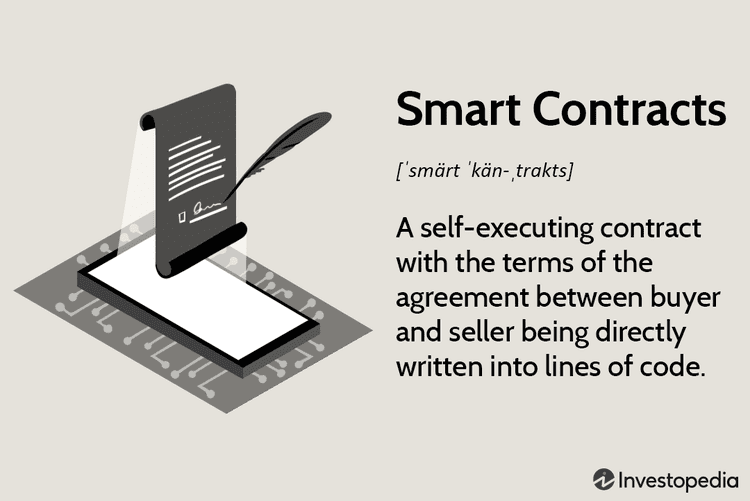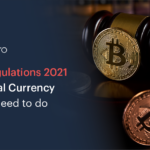Understanding Smart Contracts: The Backbone of DeFi Projects introduces a revolutionary mechanism that has reshaped the way we view financial transactions in the digital realm. Smart contracts are self-executing agreements where the terms are directly written into code, enabling trustless interactions and automating processes without the need for intermediaries. As decentralized finance (DeFi) continues to gain traction, understanding these contracts becomes crucial for anyone looking to navigate this innovative landscape.

These digital contracts not only streamline operations but also enhance security and transparency in financial dealings. From lending protocols to decentralized exchanges, smart contracts are at the heart of various DeFi applications, making it essential for users to grasp their workings and implications thoroughly.
In today’s fast-paced world, the concept of personal growth has gained immense popularity. The journey of self-improvement is not just about achieving goals but involves a holistic approach to enhance various aspects of life. Whether it’s developing new skills, improving emotional intelligence, or fostering healthy relationships, personal growth is a multidimensional process that can lead to a more fulfilling life.To embark on this path, one must first understand the importance of self-awareness.
Self-awareness is the foundation of personal growth; it involves recognizing one’s strengths, weaknesses, values, and beliefs. By taking the time to reflect on these factors, individuals can identify areas that require improvement and set realistic goals for themselves. This self-reflection can be done through journaling, meditation, or simply taking a moment to pause and evaluate one’s thoughts and feelings.Once self-awareness is established, the next step is to set specific, measurable, achievable, relevant, and time-bound (SMART) goals.
These goals provide direction and motivation, guiding individuals on their journey toward personal growth. For instance, instead of setting a vague goal like “I want to be fit,” a SMART goal would be “I will exercise for 30 minutes, five times a week for the next three months.” This clarity not only makes it easier to track progress but also boosts confidence as milestones are achieved.Another crucial aspect of personal growth is the willingness to step out of one’s comfort zone.
Growth often occurs when we challenge ourselves and take risks. This might involve trying new activities, meeting new people, or pursuing opportunities that seem daunting. Embracing discomfort can lead to significant personal development and resilience. For example, public speaking can be terrifying for many, but taking a course or joining a group like Toastmasters can build confidence and enhance communication skills over time.Developing a growth mindset is also essential in the journey of personal development.
Coined by psychologist Carol Dweck, a growth mindset is the belief that abilities and intelligence can be developed through dedication and hard work. This mindset fosters a love for learning and resilience, allowing individuals to embrace challenges and learn from failures. On the contrary, a fixed mindset may lead to avoidance of challenges and a fear of failure, hindering personal growth.Moreover, surrounding oneself with supportive and like-minded individuals can have a significant impact on personal growth.
Engaging in communities that encourage growth—whether through workshops, classes, or online forums—can provide motivation and accountability. These interactions often lead to valuable insights and perspectives that can accelerate the personal development journey.In addition to external support, it’s vital to cultivate self-compassion. Personal growth can sometimes be a bumpy road, filled with setbacks and challenges. Practicing self-compassion means treating oneself with kindness and understanding during difficult times.
Instead of being overly critical, it involves recognizing that everyone makes mistakes and that these setbacks are part of the learning process. This mindset can lead to greater emotional resilience and a more positive outlook on life.Furthermore, incorporating continuous learning into daily life is another powerful tool for personal development. This can take many forms: reading books, attending workshops, taking online courses, or simply engaging in conversations with knowledgeable individuals.
Lifelong learning fosters curiosity and adaptability, essential traits in a constantly changing world. It also opens doors to new opportunities and experiences, enriching one’s life in various ways.Time management is another critical skill that plays a significant role in personal growth. Balancing work, relationships, and personal interests can be challenging, but effective time management can enable individuals to allocate time for self-improvement activities.
Techniques such as prioritizing tasks, setting deadlines, and using tools like calendars or apps can help create a more organized and fulfilling life.Finally, it is essential to celebrate achievements along the way, no matter how small. Acknowledging progress boosts motivation and reinforces the desire to continue growing. This can be as simple as treating oneself to a favorite activity or sharing accomplishments with friends and family.
Celebrating milestones fosters a positive attitude towards the journey of personal growth, making it more enjoyable and rewarding.In conclusion, personal growth is an ongoing journey that requires commitment, self-awareness, and the right mindset. By setting clear goals, stepping out of comfort zones, embracing a growth mindset, and surrounding oneself with supportive individuals, anyone can foster personal development. It’s a process filled with challenges and triumphs, but the rewards—a more fulfilling and enriched life—make it all worthwhile.
So, whether you’re just starting or looking to enhance your personal growth journey further, remember that every step taken towards self-improvement is a step towards a better you.



